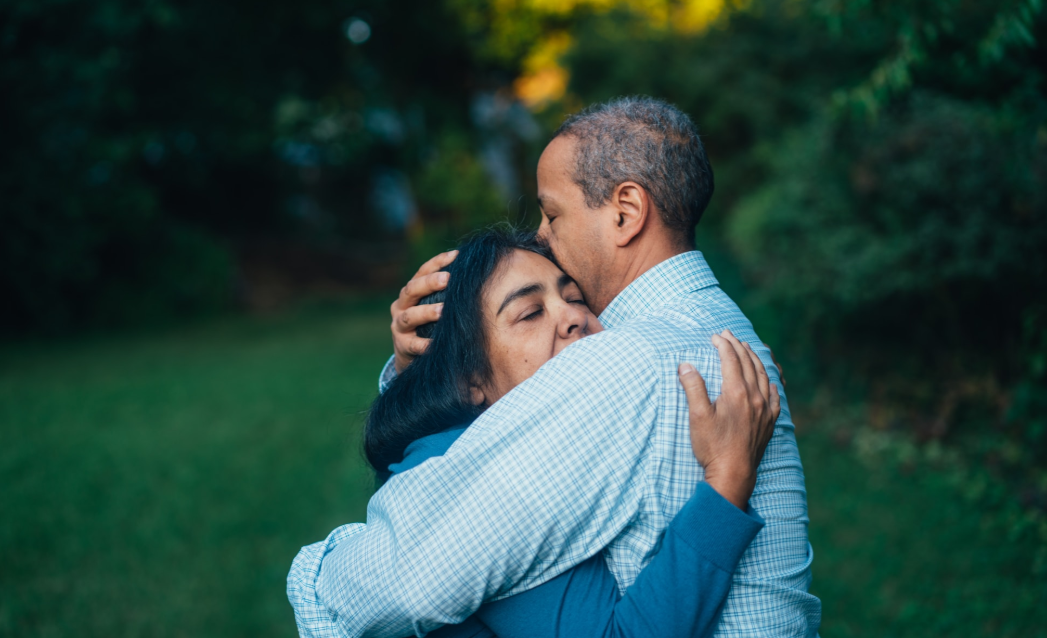Loving an Addicted Person

February is the month associated with love. We buy the cards, chocolates, and flowers for our loved ones and hope to get a gesture in return. But what if your loved one is struggling with an opioid addiction? Loving an addicted person isn’t always easy.
The act of love is more than candy and flowers for families stricken with addiction. Love is what we show and the words we say to our loved ones. It doesn’t just happen in February; it generally happens year-round.
Loving an Addicted Person Can Motivate Him or Her
Love is a powerful emotion. The love you have for your family compels you to take extra steps to protect and care for them. When your loved one has an opioid addiction, love can be a changing factor.
When you show love and support to a person, it motivates them. Those with addiction certainly need motivation to enter a rehab facility. People are more open-minded to your concerns when you express them with love. In other words, loving an addicted person can help him or her realize there’s a problem.
Not only can your support motivate your loved one to enter rehab, but it can also encourage them to stay there for the duration of treatment. Each day begins with hope, as they wake up knowing that their family loves and supports their journey. Loving an addict gives one the strength to keep fighting.
Loving an Addicted Person in Action
The old adage says that actions speak louder than words. Contradicting yourself is confusing. For example, don’t tell your addicted loved one that you support them and then abandon them in their journey. So, how can you go beyond words and show love to your addicted family member?
Talk with your loved ones.
Loving an addicted person means taking the time to listen to what your loved one is feeling. The act of sitting beside them and just listening can speak volumes. Furthermore, discuss what their needs are. Give them the chance to share their feelings with you.
Stay in contact with your loved one.
Once your addicted loved one has entered rehab and begins their program, make time to connect with them. Don’t abandon them at the door. The more “present” their support system is, the higher the chances that they’ll achieve long-term recovery.
Loving an addicted person often means setting aside feelings of guilt, resentment, anger and confusion for the time being. But treatment will allow the family unit to heal together. Besides that, they still need your love and support, regardless of the hard feelings brought on by addiction. Make the effort to write letters, make phone calls, and visit them.
Be a positive place for your loved one.
Encouragement and positivity can certainly go a long way. There are going to be days that your addicted loved one will certainly feel like giving up. They may want to check out because something didn’t go as planned. Furthermore, they may not want to tackle the hard subjects that will arise in therapy sessions.
Loving an addicted person means stepping in with an encouraging word when necessary. Finally, avoid judgement. If you basically stay positive, your loved one can get strength from you to carry on the fight.
Showing Love While Your Addicted Family Member is in Rehab
As mentioned earlier, showing love doesn’t stop at the door of the rehab facility. Becoming involved in the rehabilitation process is the greatest way to show love.
Family therapy is particularly crucial in the treatment of addiction. Most addiction cases begin with a problem that is deeper than the substance abuse. Your loved one may be searching for something that the drug has given them. They may even be trying to escape something that you know nothing about. Involvement in therapy can open your eyes to issues that may surprise you. Likewise, loving an addict means that you are willing to fight together.
Support groups are a way to connect with other families that are going through the same trials. When you take the time to become involved in a support group, it can change your perspective about addiction. This can rub off on other family members, too. Support groups are a way to keep you strong so that you may continue to encourage your loved one.
Intervention is something that most families would rather avoid. They are afraid of what will happen. Families don’t want to upset their addicted loved one because they worry that it could drive them deeper into addiction. As hard as an intervention may be, it is indeed an ultimate showing of love. Loving an addicted person means you’re willing to do the hard stuff.
Our Final Thoughts…
Love is powerful. It can move mountains and it can change your family. If you have a family member struggling with opioid addiction, show them love. Overall, use that love to motivate them to enter and continue rehabilitation.
Show your love chiefly in the form of actions and be present in the therapy sessions or support groups they participate in. Remember that love is the emotion that changes everything for your loved one. It could certainly be the factor that saves their life.
If you have a loved one struggling with opioid addiction, don’t be afraid to talk to them about getting help or scheduling an intervention. Contact us if you need resources. Then join them in changing the life of your family.
